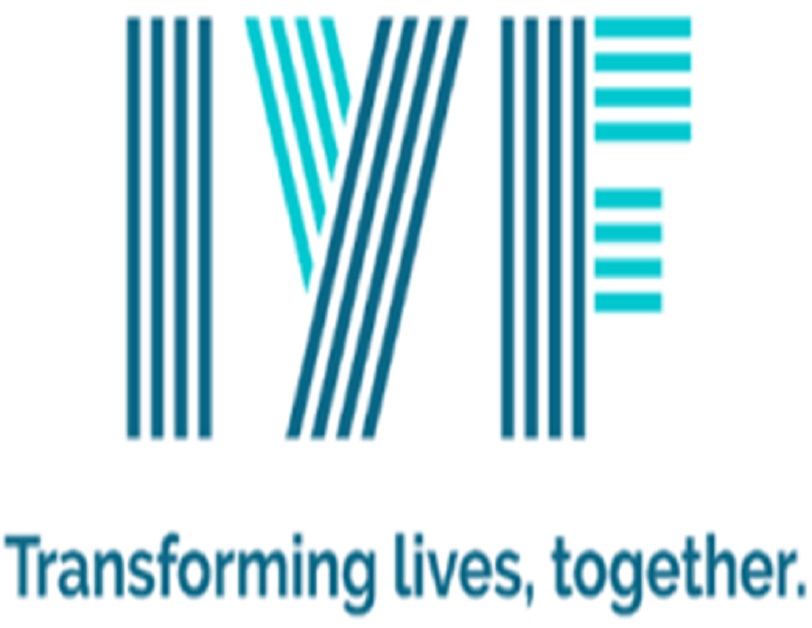Telecom
IYF, Google.Org Partner to Empower Youths with Digital & Entrepreneurial Skills in Nigeria, South Africa & Kenya

International Youth Foundation (IYF) and Google.org have joined hands to provide young individuals in South Africa, Kenya and Nigeria with digital and entrepreneurial skills to enable them secure alternative sources of livelihood.

IYF South Africa with the support and funding of Google.org is currently deploying various programs for young people in the three African countries, which has had an impact in providing them access to digital and entrepreneurial skills. Through its high impact training, IYF South Africa is making a substantial contribution to enabling young people with key skills to develop their entrepreneurial skills through continuous investment made by organizations in IT across all sectors.
Since its inception 30 years ago, IYF has been able to reach 7.7 million young people while working with more than 600 local partners in over 100 countries.
Participating youth are taught business, technical, and life skills as part of the Skills for Success (S4S) program. This will result in an increased demand for highly skilled youth in the IT sector as well as the move towards development of curricula that reflects constant innovation and change that is occurring in the IT field, as a result young people will need IT skills to be successful in a variety of careers.
The IYF is cultivating future industry leaders in Africa as graduates from this program emerge with improved skills, which increase their employability. In addition, Skills for Success is positively changing lives and communities through its placement partners, who provide work opportunities for newly qualified youth.
Speaking on the program, Anusha Naicker, Country Director, IYF South Africa, asserts, “The entrepreneurial component of the program provides guidance and business acumen that are essential for business success. As a result, there is growing confidence among young African entrepreneurs that they can start a business that solves many of the challenges facing their communities.”
Entrepreneurship is marked by job creation rather than job seeking and is one of the most sought-after career paths for young people. The entrepreneurial career path creates meaningful and rewarding opportunities for youth and is therefore a great way for the young generation to explore their areas of interest. Entrepreneurship offers innovative solutions for economic growth and can be a powerful tool to help fight youth unemployment, particularly in developing countries.
“This program taught me the basics of UX design, the design thinking process, how to build prototypes for testing with users, conduct UX research, and design responsive websites. With this knowledge, my design skills keep improving daily, and I can see myself making a living doing what I love,” says Diane Shamaki, a learner from Nigeria (Paradigm Initiative).
Sub-Sahara Africa has the youngest population in the world, in the next 30 years, 60% of Africans will be under the age of 25. Having a young population brings many opportunities for economic growth and innovation, if these opportunities can be recognised and utilised. Youth demonstrate the necessary qualities and mindset to succeed as entrepreneurs, their intuitive ability to navigate technology makes entrepreneurship an ideal career option, given the impact technology will have on entrepreneurial growth.
To succeed as entrepreneurs, they often need to complete training to develop competencies and skills. Skills development programs that offer skills training and could be applied after completion of the program are highly attractive to youth. These programs are one of the avenues used by youth to rise above poverty, inequality and barriers to opportunity, transforming and upskilling Africa.
Given that unemployment is on the rise in Sub Saharan Africa, young people are becoming more robust in seeking alternative opportunities to secure livelihood.
Many learners have pursued entrepreneurial career paths after completing the program, with at least 40% finding employment in all three countries. It takes perseverance, networking skills, and passion to succeed as a young African entrepreneur. Undoubtedly, entrepreneurship is a powerful tool for empowering young people by celebrating their creativity and technological aptitude.
Entrepreneurship among youth is praised not only for its ability to create jobs and empower young people but also for its ability to integrate young people into society, especially those with fewer opportunities. In addition to providing young people with the necessary skills and experiences to thrive economically, youth entrepreneurship also contributes to their countries’ prosperity.
A powerful tool for addressing the rising youth unemployment rate is using micro, small, and medium-sized businesses, which make up 95% of all firms and create 80% of all jobs in Africa. The micro, small, and medium enterprise sectors include a significant portion of young entrepreneurs.
The World Bank claims that young people frequently work in sectors that are expanding quickly and are more likely to hire their peers. When youth-led businesses have the right knowledge, skills, mentorship, funding, and supportive policies, they can grow economies and create jobs.
IYF is honoured to contribute to fostering the conditions necessary for young people to engage in entrepreneurship and raise living standards in their communities and families.
Telecom
NCC, REA Move to Power Telecoms with Renewable Energy

Nigerian Communications Commission (NCC) and Rural Electrification Agency (REA) have teamed up to develop an initiative that will reduce the $350 million annual spending on diesel by telecom operators in Nigeria.

According to a press statement by Nnenna Ukoha, acting had of Public Affairs, NCC, this collaboration will focus on deploying renewable energy solutions to support telecom infrastructure, particularly in rural and underserved areas.
To that end, the two agencies have inaugurated what they called NCC–REA Collaboration Committee, aimed at deploying renewable energy solutions to power telecom infrastructure across the country.
According to the State of Africa’s Infrastructure Report 2025 by the Africa Finance Corporation, telecom operators in Nigeria consume more than 40 million litres of diesel every month, costing them over $350 million annually.
The statement read, “The Nigerian Communications Commission has formally inaugurated the NCC–REA Collaboration Committee, marking a pivotal step towards advancing Nigeria’s digital and energy inclusion objectives by developing modalities for the deployment of renewable energy to support telecom infrastructure in Nigeria.”
The inauguration ceremony, held on Friday, at the NCC Headquarters in Abuja, was presided over by Dr Aminu Maida, executive vice chairman and chief executive officer, NCC.
Maida was joined by Abba Aliyu, managing director of the REA, along with senior executives and committee members from both organisations.
Speaking at the event, Maida described the collaboration as a timely and strategic alignment of national priorities.
He noted that bridging the connectivity and power gaps in rural areas remains critical for Nigeria’s growth and development.
He highlighted that the demand for digital services and connected communities creates an opportunity for renewable energy to play a crucial role.
Maida further emphasised that the partnership goes beyond infrastructure; it is aimed at driving inclusion, reducing inequalities, and fostering shared prosperity.
“Whether it is powering a base station or enabling a child to access digital learning, this partnership has the potential to transform realities and bring opportunity closer to the people.
“This initiative is about more than infrastructure, it is about driving inclusion, bridging inequalities and creating the conditions for shared prosperity,” he was quoted in the statement.
He also noted that the initiative aligns with President Bola Tinubu’s Renewed Hope Agenda, which aims to ensure no community is left behind in Nigeria’s energy and digital transformation.
Aliyu, representing REA, expressed confidence in the transformative potential of the collaboration.
“This partnership will unlock sustainable development opportunities for millions of Nigerians, especially those in areas lacking traditional infrastructure,” he said.
He further emphasised that the collaboration would address both energy and connectivity gaps, benefiting those who are currently underserved.
The newly established NCC-REA Collaboration Committee will work to co-develop and implement integrated solutions that leverage renewable energy to power telecom sites.
The statement noted that the committee will also focus on sharing geospatial data to improve planning, aligning funding frameworks, and tracking the socio-economic impact of the project through clear performance indicators.
Telecom
NCC Approves MTN, 9Mobile Roaming Collaboration Deal

MTN Nigeria Communications Plc has announced the execution of a national roaming agreement with Emerging Markets Telecommunications Services Limited (9Mobile), a move that signals a major milestone in Nigeria’s telecommunications landscape.

The Nigerian Communications Commission (NCC), the industry’s regulatory authority, has approved the three-year deal, which allows 9Mobile subscribers to roam seamlessly on MTN Nigeria’s extensive network infrastructure across the country.
The agreement, effective immediately, will significantly enhance connectivity and user experience for 9Mobile customers, particularly in areas where its network coverage is limited.
By leveraging MTN’s expansive infrastructure, 9Mobile can now offer improved service reach and reliability, without duplicating capital-intensive investments in network deployment.
In a notice to the Nigerian Exchange Limited and the investing public, MTN Nigeria described the arrangement as a strategic collaboration that underscores its leadership in fostering innovation, industry cooperation, and operational efficiency.
The company emphasized that the initiative aligns with the NCC’s broader objective of promoting infrastructure sharing to improve telecommunications services nationwide.
“This agreement represents a significant step in our commitment to driving industry collaboration, improving customer experience, and supporting the NCC’s vision of a fully connected Nigeria,” said Karl Toriola, chief executive officer, MTN Nigeria.
“Delivering the scale required for telecommunications services in Nigeria requires strong collaboration between the private sector, public sector, and long-term investors. This agreement demonstrates what we can achieve when we collaborate, and we are delighted to announce it today after months of groundwork.”The national roaming deal enables subscribers from 9Mobile to access voice and data services through MTN’s network in areas where the former lacks adequate coverage.
This marks the first such large-scale, cross-network roaming arrangement between two major operators in Nigeria, setting a precedent for future cooperative efforts in the telecom industry.
MTN Nigeria highlighted that the agreement contributes to more effective use of telecommunications resources, reduces infrastructure duplication, and accelerates the expansion of mobile broadband access across underserved regions.
It also supports both operators’ sustainability objectives by maximizing existing investments and reducing the environmental impact of deploying overlapping network facilities.
“This strategic collaboration is yet another first in the country by MTN Nigeria and marks a significant milestone for the sustainability of the telecommunications industry,” the company stated.
“By enabling national roaming, MTN Nigeria is contributing to a more effective use of telecommunications resources and accelerating efforts to expand connectivity across the country.”
The agreement is expected to benefit not just subscribers and operators but also regulators and investors who have consistently advocated for policies that promote shared infrastructure and efficient capital utilization in Nigeria’s digital economy.
Uto Ukpanah, company secretary, MTN Nigeria, affirmed the company’s ongoing dedication to initiatives that create shared value.
“MTN remains committed to fostering innovation and partnerships that create sustainable value for all stakeholders while promoting digital and financial inclusion nationwide,” she noted.
With the successful rollout of this agreement, the telecoms industry is expected to see improved service delivery and expanded access to quality mobile services, especially in rural and semi-urban communities. The collaboration sets a benchmark for future inter-operator partnerships and reinforces the importance of regulatory support in advancing national connectivity goals.
Telecom
Don’t Visit Telecom Centers for Now — ALTON Warns of SIM Service Downtime

Association of Licensed Telecommunications Operators of Nigeria (ALTON) has announced a temporary disruption in SIM-related services across all mobile networks in the country.

The disruption, according to a statement on Wednesday, follows a directive from the National Identity Management Commission (NIMC), mandating mobile network operators (MNOs) to migrate to a new identity verification platform.
ALTON said the transition had triggered unforeseen technical challenges, affecting services such as SIM registration, replacement, and mobile number portability.
“While the new platform is intended to enhance the integrity and efficiency of identity management in Nigeria, unfortunately, the transition has temporarily impacted service delivery,” the association stated.
It added that MNOs would not be able to support SIM swaps, new activations, and related services until the issues are resolved.
ALTON noted that its members are working closely with the Nigerian Communications Commission (NCC), NIMC, and other stakeholders to restore normalcy.
The association appealed for public understanding and urged subscribers to delay visits to service centers for SIM-related matters.
“We sincerely apologise for the inconvenience and will continue to provide timely updates,” the statement read.
ALTON reaffirmed its commitment to delivering secure and quality telecommunications services to Nigerians.

 E-Financial2 days ago
E-Financial2 days agoAccess ARM Pensions Advocates Ways to Boost Civil Servants’ Retirement

 E-Business2 days ago
E-Business2 days agoFirm Warns as Social Media Scams Put Users’ Data at Risk

 Telecom1 day ago
Telecom1 day agoAVEVA Highlights Climate Impact Gains in 2024 Sustainability Report

 Telecom2 days ago
Telecom2 days agoMTN Nigeria Launches “Mega Billion Promo” to Reward Customer Loyalty and Drive Financial Inclusion

 General News1 day ago
General News1 day agoAfCFTA Opens Opportunity for Logistics Sector

 E-Business2 days ago
E-Business2 days agoNigeria Ranks 3rd in Africa for Ransomware Threats –INTERPOL

 Telecom1 day ago
Telecom1 day agoALTON Explains SIM-related Services Disruption Across Mobile Networks

 General News2 days ago
General News2 days agoNELFund Warns Students Against Fake Loan Portal



























